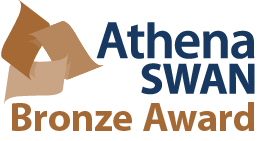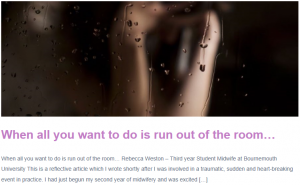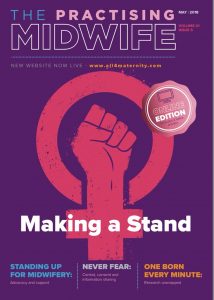A bumper policy update for you packed full of political changes and arguments, and BU gets a mention in the House of Commons. Enjoy the sunny bank holiday weekend!
Political News
Amber Rudd resigned on Sunday. Replacing her are Penny Mordaunt and Sajid Javid.
Penny Mordaunt (Secretary of State for International Development) will replace her as Women and Equalities Minister. Penny’s pre-UK political career is varied ranging from magician’s assistant, working in Romanian hospitals and orphanages, and as Head of Foreign Press for George W Bush. Previously she was the Minister of State for Disabled People, Work and Health. Her political interests are care and quality of life for the elderly, healthcare, defence, the arts, and space.
Sajid Javid will replace Amber as Home Secretary. (James Brokenshire will replace Sajid as Housing, Communities and Local Government Secretary). Sajid’s political interests are civil liberties, free enterprise, defence, and welfare policy. Sajid has held a string of parliamentary roles including Economic Secretary 2012-13, Financial Secretary 2013-14; Secretary of State for Culture, Media and Sport 2014-15; Minister for Equalities 2014; Secretary of State for: Business, Innovation and Skills and President of the Board of Trade 2015-16, and Communities, Local Government and Housing Secretary 2016-18. Times Higher took to Twitter to remind the HE world that Sajid believes international students shouldn’t stay on to work in Britain post-graduation.
#BUProud – Sam Gyimah praised BU in a recent Education select committee meeting. Questioned on whether the three year full time degree is an outdated dinosaur and whether accelerated or non-standard degrees are the future Sam replied:
- I will start off, before saying what I think the answer is, by saying that there is some good practice in the sector that is often not acknowledged. For example, 42% of degrees are currently vocational. If you look at what some universities are doing, Bournemouth University, where I was a few weeks ago, is a most effective place at training people for media and film studies. Most people would dismiss some of these things, but if you want to work at Universal Studios, one of the best universities in this country to go to is Bournemouth. They have a focused university curriculum.
Office for Students (OfS) Strategy and Business Plan
The OfS have published their strategy and business plan. They set out their familar 4 objectives ( participation, experience, outcomes and value for money). The OfS will deliver their strategy by:
- Ensuring providers meet the quality threshold (the 24 conditions of registration)
- Supporting informed student choice about courses and careers
- Taking action to ‘ensure that the sector is working effectively in the interests of students, employers, and society’.
- The OfS will publish key performance indicators in the summer to measure the business plan.
- Being an efficient and effective regulator
The OfS will also measure contributory progress against these cross cutting strategic outcomes:
- Public trust and confidence in HE
- National social mobility
- Equality & diversity within HE and beyond
- A dynamic national workforce
There is more detail in the Business Plan 2018-19, including:
- The intention to evaluate the return on investment on access and participation plans and impact work; develop, address cold spots and evaluate IAG; and increase transparency data in relation to access and participation.
- New providers – address barriers to entry; facilitate alternative forms of provision and develop measures of diversity of provision and innovation (including a work placement measure beyond sandwich placements and the ‘Higher education – business and community interaction’ survey data; also to support growth in technical routes.
- Deliver NSS and explore new measures and monitoring tools.
- Develop the OfS approach to student welfare and wellbeing.
- Remove barriers to student transfer.
- Continue the TEF, KEF and REF.
- Develop strategy and processes surrounding student protection and managing market exit.
And much more!
The Knowledge Exchange Framework
Research Professional published a mock Knowledge Exchange rankings table based on three years of data from the Higher Education Business and Community Interaction surveys. Hamish McAlpine, senior policy adviser for knowledge exchange at Research England, has written a progress report on work towards the real KEF. We have been a bit sceptical about the KEF at BU – because something with great potential to measure something of great benefit (going beyond REF impact) looks like being a way to channel more money to those who make money already from commercialisation….
The article is interesting because it is clear that thinking is still evolving – this sentence gives some hope about the value of the framework:
- “To this end we are looking at creating clusters of institutions with similar capabilities. These include not just staff numbers, but also things such as disciplinary mix, research strengths and intensity, income, student numbers and capital investments.”
And they haven’t yet decided on the link to funding…..but it still looks as if income is the driver:
- “Income is only a proxy for impact, but it is the best measure we have at present. Income is also robust and relatively easy to audit. It is not in anyone’s interest to distribute lots of public money based on unsound metrics”
Income is a very unreliable proxy for impact outside STEM. In her previous role at BU Jane supported a number of projects with HSS that have limited potential to make money (because they help the NHS) but have potential to make a real difference to care and outcomes. And what about all the work in social sciences – and knowledge exchange projects in FoM and FMC? So we’re still sceptical about the KEF – but it might be a bit less pointless than it was looking a few months ago. I’ve added a comment to the article – we’ll see what the response is.
Major review of post-18 education (fees and funding)
We have submitted BU’s response to the HE review and you can read it here. SUBU’s response is here.
There is a useful article by Gordon McKenzie of GuildHE on Wonkhe.
The Higher Education Policy Institute (HEPI) published their 10 points for the HE review – a useful round up of some of the issues based on HEPI’s own research over the last few years. Their 10 points relate to:
- Part-time learners
- Differential fees
- Maintenance grants
- Mixed funding model
- Uses of tuition fees
- Misunderstanding among applicants
- Outreach versus spending on bursaries
- Accounting treatment of student loans
- Level 4 and Level 5 qualifications
- Student number controls
UUK have blogged on their response to the review calling for the review to address confusion about the tuition fees system. UUK note that while the funding system hasn’t deterred young people from full time study (and is beneficial in creating stability for universities) ‘there is a lack of public confidence and understanding of how it delivers value for money for students’. They note those wishing to study flexibly, or part time, or young students who wish to earn whilst they learn aren’t serviced adequately by the existing funding system. They also call for maintenance grants to be restored.
The Universities UK submission makes a number of recommendations, including:
- government should, in partnership with universities, provide more targeted information to prospective students on the costs and benefits of higher education
- universities could develop their value for money statements, to better explain how pricing decisions for undergraduate courses are arrived at. These should explain how the university uses income from tuition fees, and other sources of income, to fund the student experience and other activities such as research
- to deal with students’ concerns about living costs, new funding should be introduced to restore maintenance grants for those most in need
- to help address students’ fears of debt, government should remove the interest rate that starts building from the start date of the course, and deliver better financial advice, especially on the difference between student loan debt and conventional debt
- greater exploration of ways that learners can study more flexibly and piloting preferential loan repayment terms for subjects that address national skills shortages
You can read Baroness Wolf in the TES on what the review is about (not just HE).
From March – the OfS report on student perceptions of value for money: – not providing a definition but see below
- “Funded by OfS, our SUs led some research into what students think. The purpose was not to definitively answer the question of what ‘value for money’ means in higher education but, rather, to explore value for money from the student perspective. Do students feel they are receiving value for money? Do student perceptions of value for money evolve as they go from school to higher education, and then into the world of work? What can higher education providers – and the OfS – do to help improve the value students perceive they are getting from the considerable investment they have made in higher education?”
Factors that demonstrate value for money:
Maintenance Grant Raid – David Morris wrote for the Guardian this week stating: The government has hinted it will reintroduce maintenance grants, but that there will be no extra money to pay for it. David believes this will take the political pressure out of the tuition fee conundrum because ‘expensive rent is probably far more of a barrier to widening access than expensive fees, since students don’t repay these until after graduation.’ David believes the Government might solve the issue of funding maintenance grants by utilising the current teaching grant. He states: ‘This time around, universities will have to convince government to find additional spending, or it will be their pockets that are raided.’
Political Battles – Martin Lewis (MoneySavingExpert) tackles Chi Onwurah (Labour MP) in BBC Question Time. In essence his fiery response blames both Government and Opposition for making Fees and Student Loans a political battlefield – serving only their own political ends and leaving prospective students bewildered about affordability. He states in itself this is what is putting off even more students because they believe they can’t afford to attend University.
- Martin: “Look politicians do this all the time and you’re making your political points and you’re doing it and you put off young people from underprivileged backgrounds going to university with a fear of debt by framing it as debt when you know it doesn’t work like that.”
- “Politicians need to take responsibility, your political football that you and all the parties have used student finance to be has miseducated a generation about how student finance works and it is an abomination you should all hang your heads in shame.
- Chi comes back to argue that fees are a psychological barrier: “It is psychological but a lot of the world is psychological Martin, how things are perceived is what informs peoples choices.”
- Martin: “Then let’s re-educate.”
Watch the short (1 minute) clip here, the Express also covered the argument.
Higher Earning Graduates – Sam Gyimah avoided responding to a parliamentary question on higher earning graduates this week.
- Q – Jim Cunningham: What estimate he has made of the number of graduate students who are earning over £50k and have begun repaying their student loan since 2010.
- A – Sam Gyimah: This is a matter for the Student Loans Company (SLC). I have asked the SLC’s Interim Chief Executive, Peter Lauener, to write to the hon. Member for Coventry South and a copy of his reply will be placed in the Libraries of both Houses.
Student Loan Overpayments –Another parliamentary question revealed that 55% of the nursing, midwifery and allied health professions students who were overpaid by SLC (leading to concerns about how the money would be clawed back), were overpaid by more than £1,000. And the non-repayable support has been confirmed
- Q – Baroness Thornton: Whether, given that the Student Loans Company (SLC) has accepted responsibility for overpayments to healthcare students and that the SLC told students that they were not being overpaid, the SLC will write off overpayments to physiotherapy and other healthcare students.
- A – Viscount Younger Of Leckie: The government announced on 18 April 2018 that the Student Loans Company (SLC) will provide support to ensure that none of the students affected by the error suffer hardship. Students affected by this will be eligible to apply for additional, non-repayable, support of up to £1,000 for the remainder of this academic year, and should contact the SLC. In addition, repayment of overpaid maintenance support will be deferred for all students affected until they have finished their courses and can afford to repay. Repayment of overpaid maintenance loans will happen via HM Revenue and Customs in the normal way, which is how students will have expected to repay their loans when they took them out.
Loan Terms – Another week, another student loan parliamentary question – this time Sam’s answer fails to confirm whether the Government will change the loan terms for the post-2012 students, leading to worry over how students may be affected if the post-2012 loans are sold off.
- Q – Caroline Lucas: To ask the Secretary of State for Education, whether he retains the legal power to revise the terms and conditions of student loans, including those sold to the Student Loans Company; and whether his Department has any plans to standardise those terms and conditions irrespective of the higher education start date of those loans.
- A – Sam Gyimah: Key student loan repayment terms are set out in legislation, and can therefore be amended through the applicable parliamentary processes. It is important that, subject to this Parliamentary scrutiny, the government retains the power to adjust the terms and conditions of student loans. However, the government has no plans to change, or to consider changing, the terms of pre-2012 loans, including those sold recently.Student loans are subsidised by the taxpayer, and we must ensure that the interests of both borrowers and taxpayers continue to be protected. The review of post-18 education and funding will look at how we can ensure a joined-up education system that works for everyone.
Paramedic Student Loans – A parliamentary question on reclassifying paramedic degrees for existing graduates to access the student loan whilst retraining:
- Q – Peter Kyle: To ask the Secretary of State for Health and Social Care, pursuant to the Answer of 19 April 2018 to Question 135158, if he will classify paramedic science as an exception course to allow those who study it as a second degree to obtain a student loan.
- A – Stephen Barclay: Since the decision taken by the Health and Care Professions Council on 21 March 2018 to move paramedic programmes to a degree level, the Department of Health and Social Care has been working with Health Education England and the Department for Education to actively review the position of students wishing to study a paramedic programme. This review will consider aligning paramedic courses with other healthcare courses reviewed during the recent healthcare education funding reforms.
Freedom of Speech
The Universities Minister gave a speech on Thursday at a free speech summit calling for new guidance for organisations and students on freedom of speech. Covered by The Times Sam is portrayed as championing free speech way beyond his predecessor (Jo Johnson’s) intent to ‘enforce existing measures’. Sam plans for the OfS to name and shame or fine institutions for failing to uphold his view of free speech. He has announced the intention to create a single set of guidelines ‘to clarify the rules and regulations around speakers and events to prevent bureaucrats or wreckers on campus from exploiting gaps for their own ends’. The NUS is permitted to input into the new rules. See the Government’s press release here.
- UUK commented: “Tens of thousands of speaking events are put on every year across the country. The majority pass without incident. A small number of flashpoints do occasionally occur, on contentious or controversial issues, but universities do all they can to protect free speech so events continue.”
- Sector press has noted that the Joint Committee on Human Rights report (March 2018) did not believe there to be a problem with free speech at universities: we did not find the wholesale censorship of debate in universities which media coverage has suggested. And on the ‘chilling’ (deterrent) effect ‘which is hard to measure’: A much broader survey of students’ opinion would be needed to assess levels of confidence amongst the student body as a whole. Source
- Free Speech does get a (very limited) mention in the OfS’ new Business Plan – one mention (page 7) ‘Incentivise positive student experiences beyond the conditions of registration – Define and begin to deliver the OfS’ role to promote and protect free speech.’
- THE also reported on Sam’s speech, ironically noting it was delivered at a ‘behind-closed-doors’ event.
- Sam wrote for The Times Red Box on Thursday: The time I was almost censored on campus. There is an entertaining range of reader comments following Sam’s piece, only overshadowed by the Twitter glee that the quote Sam opens his article with is misattributed. Whoops.
HEPI Free Speech blog
On Tuesday HEPI got the last word in on Free Speech ahead of Sam’s speech. See their blog Six points about free speech at universities. Nick Hillman commenced with HEPI’s survey statistics on free speech. Most of his six points are familiar:
- The current law is ‘in about the right place’ on free speech issues – and notes the need for legitimate limits (terrorism influence, inciting violence, risking safety of others)
- Universities have the expertise, the time and resources to debate issues freely
- Debate and expose bad ideas to defeat them (not hide away)
- HEPI refer to their detailed study of free speech. The blog suggests a quarter of students are illiberal wanting to ban some extreme positions, and HEPI interpret mixed results as confusion amongst students (saying yes to almost any question on free speech, whether supporting free speech, backing trigger warnings or supporting Prevent). It could be confusion, it could be students repeating back the social ideal they may not genuinely sign up to, or it could be poor questionnaire design! But on the confusion the blog goes on to recommend…
- Universities need to help students through the complexities of free speech issues (and avoid too much red tape when putting on events)
- HEPI don’t believe the situation is as bad as the media portray, however, they note if the sector continues to provide contentious ‘juicy’ examples of threats to free speech then the media will seize on them and further blow the debate out of proportion.
International Students
False Deportation – On Tuesday the Financial Times broke the news of 7,000 international students falsely deported in: Home Office told thousands of foreign students to leave UK in error. Wonkhe have provided a summary:
- The Financial Times reports that the Home Office may have ordered up to 7,000 international students to leave the country on the basis of false accusations that they “faked” their proficiency in English. The error allegedly occurred when US-based organisation Educational Testing Services (ETS) carried out an investigation on behalf of the Home Office into cheating in their Test of English for International Communication (TOEIC) in 2014. The investigation results led the Home Office to revoke the Tier 4 visas of around 35,870 students studying in the UK who were suspected to have used proxies to sit the test. An immigration tribunal heard in 2016 that the computer analysis used to identify fraud had been correct in only 80% of cases, meaning that 7,000 students had been deported in error. The Home Office told us “the Government took immediate robust action, which has been measured and proportionate and so far 21 people have received criminal convictions for their role in this deception” and noted that courts had consistently found in their favour that evidence in these cases was enough to act on. However, the FT cites a judgement published in 2017 that said that the Home Office’s behaviour was “so unfair and unreasonable as to amount to an abuse of power”.
The Guardian also has the story, noting that new Home Secretary Sajid Javid has been urged to conduct a review.
International Post-Doc Researchers – Earlier in the year HEPI released their report The costs and benefits of international students ahead of the Migration Advisory Committee’s consultation on international students (outcomes expected autumn 2018). At the HEPI launch event there was strong argument for the sectors which need international talent to fulfil economic and business needs but which have low graduate starting salaries. An oral question this week extended this debate to cover post-doc employment:
- Q – Jeremy Lefroy (Stafford) (Con): I declare an interest as a trustee of the Liverpool School of Tropical Medicine. Post-doctoral research fellows are a vital part of this country’s research base, and they come from all over the world, including from the EU. What discussions are my right hon. and hon. Friends having with the Home Office to ensure that our future immigration policy is based not on salaries—post-docs often receive pretty miserly salaries compared with their qualifications—but on the skills that we really need in this country.
- A – Robin Walker: I regularly attend the higher education and science working group chaired by my hon. Friend the Minister for Universities, Science, Research and Innovation, where we discuss these issues, and we have been feeding into the work being done by the Migration Advisory Committee and the Home Office on that front. The Prime Minister made clear that we will want to continue to attract key talent from around the world, and Britain will want to continue to be a scientific superpower in the years to come. It is essential that we get our policies right on this.
Widening Participation & Achievement
New Fair Access Tsar, Chris Millward, blogs for UUK on the ‘OpportUNIty for everyone’ campaign aiming to promote the work done by universities on social mobility. Chris’ entry into the sector as Director for Fair Access and Participation has had WP buffs pondering whether there will be an entirely different fair access landscape with new directives. Perhaps unintentionally Chris’ blog continues to repeat Les Ebdon’s constant calls for ‘faster change’: ‘Opportunity for everyone’ shows how universities are opening their doors, but they must build on this for faster change. It perhaps favours a focusing of the WP target groups by specifically mentioning:
- Young people from identified low participation neighbourhoods (LPN) – concern: access and successful completion
- White boys from low income families (also within LPN and in receipt of free school meals) – concern: access
- Mature students – concern: falling numbers accessing HE
- Black and Asian, and Disabled students – concern: parity of numbers receiving good degree and/or successfully securing a graduate level job
- Students reporting mental health concerns – concern: better support to complete degree
It notes all universities are expected to narrow their gaps in all these areas. Chris promises the OfS will ‘develop evidence and effective practice guidance, and create opportunities to promote its use’ through a national Evidence and Impact Exchange. You can follow the Opportunity for everyone campaign on Twitter via: #YesUniCan
Brexit – Science & Innovation
The House of Commons Science and Technology Committee have published Brexit, science and innovation (fifth special report of session 2017-19). This gives the Government’s response to the Committee’s previous paper. Here are excerpts from the introduction:
- The Government welcomes the Science and Technology Select Committee’s report ‘Brexit, Science and Innovation’, and is grateful for the Committee’s positive view on the Government’s input to the EU’s consultation on the shape of Framework Programme 9 (FP9). The Committee’s report highlights key issues that will need to be considered as we leave the European Union and continuing to build the broadest and deepest possible partnership with the EU on Science and Innovations remains a top priority.
- As made clear in the UK’s position paper on Framework Programme 9, a continued focus on excellence is essential, and the EU and its Member States should facilitate and strengthen collaborative working with other countries on shared priorities for mutual benefit. The principles of excellence and competitiveness that underpin European collaboration drive up the quality of research outputs and contribute to higher skills levels.
- The Government’s commitment to underwrite Horizon 2020 funding has provided clarity and assurance to UK businesses and universities.
- The Government has been consistently clear that the UK is, and will continue to be, a place that welcomes talented scientists and researchers from across the globe to work or study here.
- We value the strong collaborative partnerships that we have across the EU in the areas of science, research and innovation and recognise the important contribution they make to the UK.
Read the Government’s response to the four recommendations here.
Life Sciences
And just in case you missed it last week here is the House of Lords Science and Technology Committee report – Life Sciences Industrial Strategy: Who’s driving the bus?
Mental Health
OfS blog on the HE partnership who are trialling new strategic methods to support good mental health through the Catalyst funding. The approach is based on UUK’s Step Change framework. Student suicides were in the news this week and there is a parliamentary question asking about national student suicide figures due for answer next week.
Strike law suits
Wonkhe report that some students intend to sue their universities over the strike action. In line with the wishes of the self-appointed “Minister for Students”, some students are now seeking compensation for teaching time lost at the 65 institutions affected by the 14 days of recent USS pension strikes.
Over 100,000 students have signed petitions to complain about the issue and request refunds. However, widespread media coverage has focused on Tel-Aviv/London-based English law firm Asserson, a “disputes” specialist, which has set up a website encouraging UK, EU, and non-EU students to sign up to a class action lawsuit to potentially claim “hundreds of pounds each”. Apparently, it now has over 1,000 signatures, enough to apply for a group litigation order. If the firm can secure funding from a specialist litigation funder for the no-win-no-fee claim, get insurance against a failed claim, and work out how to distribute claimants across institutions, we may see a landmark case. Shimon Goldwater of the firm said this could cost universities “millions of pounds”.
Some institutions have put unspent pay in hardship funds, and those with student contracts will be checking the wording carefully. At the time, Universities UK (UUK) advised students to start with institutional complaints procedures, then if necessary escalate them to the Office of the Independent Adjudicator (OIA) in England and Wales. The OIA’s annual report came out on Thursday, showing a slight increase in complaints in 2017 – 1,635 compared to 1,517 the previous year. The student-as-consumer trend continues.
Wonkhe’s website also explains how group litigation works and a blogger warns that calls for money back could result in them becoming victims of another compensation scam.
No pause for Purdah
Research Professional explores how a Purdah period needn’t be a gag order. They confirmed that scientists are permitted to make public statements during election campaigns. On 11 April, the Cabinet Office issued revised election guidance for civil servants permitting scientists to continue with their work in the run up to an election. During the 2017 general election, the UK Research Councils “strongly” advised against issuing press releases about new research. Jeremy Heywood, Head of the Civil Service, stated: the [purdah] principles are not, and have never been about restricting commentary from independent academics.
Fiona Fox (Chief Executive of the Science Media Centre) writes in Research Professional to urge all to get the message out:
This is an important moment for the scientific community, but only if we shout about it. We must make sure that the new guidance is to hand the next time someone tries to use purdah as a reason to restrict scientists from speaking publicly about their research during election time.
UK Research and Innovation in particular has an important role here to ensure that all the academics it funds know about and understand these positive changes. The multiple sets of guidance on guidance, which emphasises what scientists cannot say in elections, should be replaced with a simple statement of what academics should continue to do as normal.
Purdah was never intended to silence scientists, but in the absence of real clarity, some allowed that to happen. Now that we have the clarity there is no excuse to let it happen again.
Consultations
Click here to view the updated consultation tracker. Email us on policy@bournemouth.ac.uk if you’d like to contribute to any of the current consultations.
New consultations and inquiries this week:
- The House of Commons Education Committee has launched an inquiry into the challenges posed and opportunities presented by the Fourth Industrial Revolution. As outlined in the inquiry press release, the Fourth Industrial Revolution is characterised by the emergence of a range of new technologies including artificial intelligence, robotics and the internet of things. The changes are likely to have a major impact on both productivity and the labour market, with low and medium skilled jobs most at risk. The inquiry will examine how best to prepare young people to take advantage of future opportunities by looking at the suitability of the school curriculum. It will also look at the role of lifelong learning and how best to help people climb the ladder of opportunity in the future. Please see further details and links below:
Interesting news
- If you’re a bit rusty on the different elements of parliament this 1 minute You Tube Video may be for you: Why does the House of Commons Chamber look empty?
- Trans experience: Wonkhe bloggers examine the experience of trans and gender diverse staff in HE and how matters can move forward more positively.
- Alumni & data protection: BU’s own Fiona Cowrie writes for Research Professional on how the imminent data protection changes will affect universities’ relationships with their alumni.
- Personal statements: A role for school’s to supplement second-hand cultural capital by supporting students through tailored super-curricular experiences. A simple read setting out what makes the difference in successful UCAS personal statements.
- Influencing policy through research: We’ve mentioned this previously and Wonkhe have a new blog post on getting parliament to pick up research and translate it into policy. It lists 10 simple steps to make connections and present your research effectively for policy makers.
- Useful complaints: A blogger from the Office of the Independent Adjudicator blogs on the impact listening to and acting on complaints can have in: Complaints – student engagement in its rickets form?
- BTEC students: BTEC students are more likely to fail and not progress to their second year, although the non-continuation rate varies with subject choice. Overall patterns of progression show more BTEC students fail the end of first year examination as compared to entrants with other qualifications. One possible explanation for this is that they are at a different starting point in terms of academic preparedness and understanding assessment expectations in HE. Interventions may therefore need to target support around learning and progression of BTEC students during first year in HE or even earlier to encourage transferable learning. Subject-wise patterns of progressions for BTEC students show they are less successful in Computer Science and Business Studies as compared to Sports. Interventions and academic support in HE need to be tailored across subject-areas in line with course structure and programme requirements to help BTEC students achieve better educational outcomes. It might be the case that not just inclusive pedagogies across universities, but a collaborative approach between higher education providers and FE colleges, can support the progression of these students better. This is all the more important as BTEC qualifications are acknowledged as contributing to widening HE access. Read How successful are BTEC students at university? for more detail and interactive charts.
Subscribe!
To subscribe to the weekly policy update simply email policy@bournemouth.ac.uk
Missed last week’s policy update? View it here.
JANE FORSTER | SARAH CARTER
Policy Advisor Policy & Public Affairs Officer
Follow: @PolicyBU on Twitter | policy@bournemouth.ac.uk
 The Strategic Advisory Network provides the EPSRC Executive with strategic advice to develop and implement plans and to make appropriate recommendations to EPSRC Council. The Network is a flexible resource, enabling the Executive to obtain the advice required in a timely fashion, drawing on a range of perspectives from across EPSRC’s key stakeholder groups including academia, business, third sector and Government.
The Strategic Advisory Network provides the EPSRC Executive with strategic advice to develop and implement plans and to make appropriate recommendations to EPSRC Council. The Network is a flexible resource, enabling the Executive to obtain the advice required in a timely fashion, drawing on a range of perspectives from across EPSRC’s key stakeholder groups including academia, business, third sector and Government.
 We will be submitting an application to be re-accredited with the bronze Athena SWAN award in Winter 2018. The bronze institution award requires universities to undertake an assessment of gender equality in the institution, including quantitative (staff data) and qualitative (policies, practices, systems and arrangements) evidence and identifying both challenges and opportunities. We are holding a series of focus groups at different levels during Spring/Summer 2018 and all BU staff are invited to attend. These will provide rich qualitative data about staff experiences and perceptions, as well as suggestions for improvements, around key areas assessed via the SWAN process. The focus groups also show BU’s continuing commitment to gender equality and desire to engage with staff. The data will be reviewed by the SWAN Self-Assessment Team and Steering Group and will inform the award submission and action plan.
We will be submitting an application to be re-accredited with the bronze Athena SWAN award in Winter 2018. The bronze institution award requires universities to undertake an assessment of gender equality in the institution, including quantitative (staff data) and qualitative (policies, practices, systems and arrangements) evidence and identifying both challenges and opportunities. We are holding a series of focus groups at different levels during Spring/Summer 2018 and all BU staff are invited to attend. These will provide rich qualitative data about staff experiences and perceptions, as well as suggestions for improvements, around key areas assessed via the SWAN process. The focus groups also show BU’s continuing commitment to gender equality and desire to engage with staff. The data will be reviewed by the SWAN Self-Assessment Team and Steering Group and will inform the award submission and action plan.




 she replied with a smile. I couldn’t have agreed more.
she replied with a smile. I couldn’t have agreed more. media. If during my first trip to the
media. If during my first trip to the 

 You’ll all be really glad to know that BRIAN is now up and running!
You’ll all be really glad to know that BRIAN is now up and running!










 On Christmas Day in the Morning…
On Christmas Day in the Morning… New Nepal scoping review on maternal & neonatal health
New Nepal scoping review on maternal & neonatal health Fourth INRC Symposium: From Clinical Applications to Neuro-Inspired Computation
Fourth INRC Symposium: From Clinical Applications to Neuro-Inspired Computation Writing policy briefs
Writing policy briefs ECR Funding Open Call: Research Culture & Community Grant – Application Deadline Friday 12 December
ECR Funding Open Call: Research Culture & Community Grant – Application Deadline Friday 12 December MSCA Postdoctoral Fellowships 2025 Call
MSCA Postdoctoral Fellowships 2025 Call ERC Advanced Grant 2025 Webinar
ERC Advanced Grant 2025 Webinar Horizon Europe Work Programme 2025 Published
Horizon Europe Work Programme 2025 Published Horizon Europe 2025 Work Programme pre-Published
Horizon Europe 2025 Work Programme pre-Published Update on UKRO services
Update on UKRO services European research project exploring use of ‘virtual twins’ to better manage metabolic associated fatty liver disease
European research project exploring use of ‘virtual twins’ to better manage metabolic associated fatty liver disease